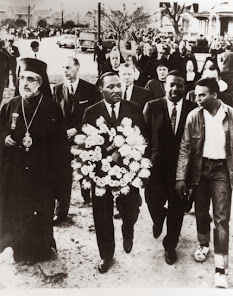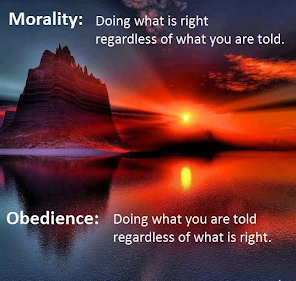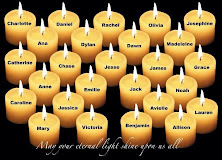Moderator's Note: this article was posted December 15, 2007 on the Orthodox Reform Web site (
http://orthodoxreform.org/).
It was originally published in the National Herald, also on December 15.Victim of Alleged Sex Abuse Opens Up about his Life’s NightmareDecember 15, 2007
Author: Theodore Kalmoukos
Date Published: 12/15/2007
Publication:
The National HeraldFormer Parishioner from Chicago-Area Church: Scars of Molestation Will Always Be With MeBOSTON – The man who first reported to the Archdiocese that he was allegedly molested as a teenager by then Rev. Nicholas Katinas, who is now defrocked, has broken his long and painful silence in an exclusive interview with The National Herald and described his nearly lifelong nightmare.
The Herald has specific knowledge of the alleged victim’s full identity, but at his request, the Herald will refrain from disclosing his identity at this time, and will instead refer to him as Olympia Fields John Doe. Out of respect for this victim, his family, the Church and the Greek American community, the Herald will also refrain from publishing graphic details about the alleged abuse.
Olympia Fields John Doe, who is identified in the original lawsuit as “DZ,” told the Herald he served as an altar boy under Mr. Katinas at the Assumption Church in Olympia Fields, Illinois. He is a second-generation American of Greek descent. He is proud of his Hellenic heritage; professionally successful; and happily married today.
His grandparents came from the Peloponnese; his parents were baptized and married in the Greek Orthodox Church; and he grew up Greek Orthodox. “My maternal grandmother, especially, was very religious,” he says.
As a typical young Greek American boy, he was connected, from early on in his life, with his local church, where he met his alleged abuser, his parish priest at that time. In the original lawsuit filed this past April 27 (pg. 7), it says Mr. Katinas told him “during the abuses… that he likewise ‘played around’ with other altar boys.”
Olympia Fields John Doe is not the only alleged victim. The amended lawsuit (dated this past November 29) alleges there are four more victims.
The alleged abuse of Olympia Fields John Doe took place “in NK’s church office almost every time,” Olympia Fields John Doe told the Herald, noting that he was an emotionally vulnerable teenager who had developed a deep level of trust in Mr. Katinas at the time, and was therefore an easy target for the alleged perpetrator, whom he now refers to as NK.
He felt something was very wrong with Mr. Katinas’ alleged advances and abuse at the time, he said, but did not understand the full nature and scope of what he allegedly underwent then.
“I attended the Assumption Greek Orthodox church in Olympia Fields in the Chicago area with my family when I was a teenager, and I started out being an altar boy. I met Nicholas Katinas at that time, around the late 1960’s, at the age of 13 or 14. Then I joined the church basketball team, and I had a chance to attend the church regularly and be involved in its religious activities,” he said.
“In retrospect, I didn’t really understand what was going on at that time. In my teenage years, I was going through some very difficult emotional times, and I didn’t feel comfortable discussing them with my parents. So I turned to NK for help and counseling. In the beginning, he was professional and provided pastoral counseling, but at one point, he crossed the line and molested me,” he added, noting that child molesters tend to zero in on their intended victims once they determine their target is vulnerable.
“I believe pedophiles ‘choose’ their victims based on the vulnerability they detect in a child. I know I was very emotionally vulnerable then, and had developed a deep trust in NK when the abuse occurred. I would guess that the other victims were also in a vulnerable situation when their abuse occurred. But NK was not just a pedophile. He was a priest pedophile. He was supposed to be a representative of God,” he said.
Asked whether he protested Mr. Katinas’ alleged actions, he stressed, “I didn’t fully realize that these teenage experiences were clergy sexual abuse and acts of molestation until I started therapy in the mid 1990’s. In 1972, I moved away from Chicago to start college, and did not see NK. Upon one of my visits back to Chicago, NK tried to initiate contact with me again. I felt very uncomfortable about this, and declined to meet with him.”
Asked whether it was because he realized Mr. Katinas had taken advantage of him, he said, “No. There was a part of me that always blamed myself. I was made to feel that it was my fault. Self-blame is part of the wound that is inflicted upon a sexually abused victim. During the course of my therapy, I realized that one of my biggest fears was that NK was continuing to molest boys in his Dallas parish.”
Asked if he eventually confronted his alleged abuser, he said, “I confronted him in 1998 and told him that his abuse had caused me a lot of guilt, misery and shame, and that I needed to know he was no longer abusing boys in Dallas. He said he was sorry for what had happened between us. He said he couldn’t explain what happened, and that he did stupid things back then. He said he has a different life now, and that I should pray for him. He also said that he feared his family finding out about his wrongdoings.”
Asked if he ever said anything to his parents and his sister, he said, “I did not, because I felt too much shame. I was so ashamed and guilty, and I always blamed myself because I was made to feel it was my fault. The only people at that time who knew what happened were my two best friends in high school. I didn’t discuss the details with them because I was too embarrassed.
Then I moved to California in the mid 1970’s. During the years I lived in California, I just mentioned it to a few close friends, so for most of my life, the abuse has been a secret that I’ve carried as a heavy emotional burden. I should have known better. Over the last decade, I’ve been going to therapy, and I’m slowly dealing with the emotional issues surrounding the abuse.”
Asked when he first communicated with the Archdiocese about the problem, he said, “I called their hotline on October 14, 2005 and told them I was a survival victim of clergy abuse. I mentioned his name, and I gave them my name and telephone number. It was not an anonymous complaint. It was an official one. An hour later, (Archdiocese Chancellor) Bishop Savas called back and said he was sorry for what had happened, and then we actually talked in detail a week later. Then I sent him a written statement detailing what happened. Bishop Savas was busy because of Christmas and the holidays, so I asked him if he could delegate a trusted member of his staff for my case. Then in February 2006, he told me he was assigning Father Michael Kontogiorgis, the assistant chancellor, to my case.”
Rev. Kontogiorgis paid him a visit on March 6, 2006. Mr. Katinas continued to serving as parish priest of Holy Trinity Church in Dallas, Texas – to which he was transferred from Olympia Fields in 1978 – and was not suspended from the priesthood until July of 2006, a few days after he retired.
Concerning Father Kontogiorgis’ visit, Olympia Fields John Doe said, “He wanted to review my ‘story.’ At the time, I asked my therapist to attend as a special witness. One of the reasons I asked my therapist to attend was that this would have been the first meeting I would be alone with a priest since the abuse occurred. Father Michael said he had spoken to my high school friends, and they had verified my story, and he was planning to confront Katinas shortly after my visit with him. On April 7th of 2006, I had a phone conversation with Father Michael, and he told me that he confronted NK, and that NK had admitted to molesting me and a small number of others who were placed in similar situations like me. I asked Father Michael what actions he was going to take since NK admitted his guilt. I asked him if the Church was going to defrock NK, and whether the Church was going to make a public disclosure to the parishioners. Father Michael said the Church did not want to take any action until they finished with the investigation, and that they were also going to send Katinas to a clinic for a weeklong evaluation.”
Asked whether the Archdiocese offered him any money to keep silent, he said, “No. I went to the Archdiocese in October of 2005 for three reasons: 1) to tell them about what happened to me as a teenager; 2) to hold NK accountable for his actions, as well as to inform the local parishes about him; and 3) to see if they would reimburse me for my past therapy costs and some estimated future therapy costs. So when I met with Father Kontogiorgis, he said that there were two separate issues; 1) to do further investigation on Katinas in order to find out more details about what happened, and 2) to evaluate the financial request I had made about therapy. He said once the Church and I agreed upon a figure, I’d have to sign an agreement releasing the Church from all future liability. The release agreement had an exclusion that I can still sue Katinas.”
Asked, when his parents found out what allegedly happened to him, he said, “My father never found out because he died in 1998. I didn’t tell my mother until April of 2006 because I felt such incredible shame. I was afraid the truth would break her heart. I finally built up the courage to tell her. She was devastated, and couldn’t believe what she heard. She was totally shocked. She was also very supportive of my attempts to heal myself. I wish I had the courage to tell my parents what happened much earlier in my life, but I have to remind myself that telling mom later in life was better than never telling her, at all.”
Asked why he didn’t go public earlier, he said, “First of all, the amount of shame and guilt I felt prevented me from taking any action. I felt numb mostly, and dissociated from the feelings of the abuse. Whenever I was able to think about the abuse, I just ended up blaming myself. It wasn’t until in the mid-90’s when I met my wife. She kept asking me why I was taking all the blame for what happened. She said NK was the adult – he was the priest, and he was wrong. At that point, I finally came to some realization that I was the victim, so I started going into therapy, and it was during the course of therapy over the last decade that I developed better clarity about what happened. The two main motivations for me going public included 1) wanting to know if Katinas was still an active pedophile, and 2) when I turned 50, I had this revelation that I did not want to go to my grave without taking some kind of an action about the abuse.”
Asked how he felt about people, to include Metropolitan Isaiah of Denver, expressing doubts that any incidents of alleged abuse ever took place, and whether there were other victims, he said, “I feel angry and shocked at reading that a Metropolitan would make such comments. These comments indicate insensitivity and lack of knowledge about sexual abuse, and totally invalidate the victims. Intellectually, I can understand such reactions because these people loved NK and could not bear the thought that he could be a pedophile. Emotionally, however, these reactions just make me distrust the Church hierarchy even more.”
What is his response to those who say that he is coming out now, after all these years, just to get some money?
“These critics are avoiding the main issue – that NK is a pedophile – and are misplacing the focus by accusing the victims of greedy motives,” he said, adding that he is not looking to profit from anything monetarily, but is simply seeking to be reimbursed for past and some future estimated therapy.
Asked how he feels about the latest amended petition, which details an alleged cover-up by Church officials, he said, “I feel so angry that these Church officials – who had the power, authority and legal obligation to report NK’s sexual abuse to the parish community and police – took no action. It’s unconscionable, and goes against the teachings of Jesus Christ. The Archdiocese is not being forthright or transparent in their handling of clergy abuse cases. The Church teaches all its children to act in an honest manner, but the Church elders are not walking their talk.”
He also said, “Recently, the Dallas parish sent out a letter to all of its parishioners asking them to donate money to help pay legal fees for the lawsuit against NK, Holy Trinity Church, the Metropolis of Denver and the Greek Orthodox Archdiocese of America.
Now that the Church’s involvement and cover-up has been exposed, how will Holy Trinity, the Metropolis and the Archdiocese respond? Will they admit that there was past guilt and settle the lawsuit with the victim, or will they continue denying any involvement and dig in their heels? The present leaders of the Church need to acknowledge the wrongdoing of those leaders who came before them. In addition, the Church has not yet officially announced the defrocking of Mr. Katinas. This is a tremendous disservice to the victims because the Church’s silence is telling everyone that it’s not important to let the victims and parishioners know that the Church does not tolerate NK’s pedophilia.”
Olympia Fields John Doe went onto college. He got married and has a successful life as an individual and professional, but said he believes the scars of clergy sexual abuse will stay with him until he dies.






